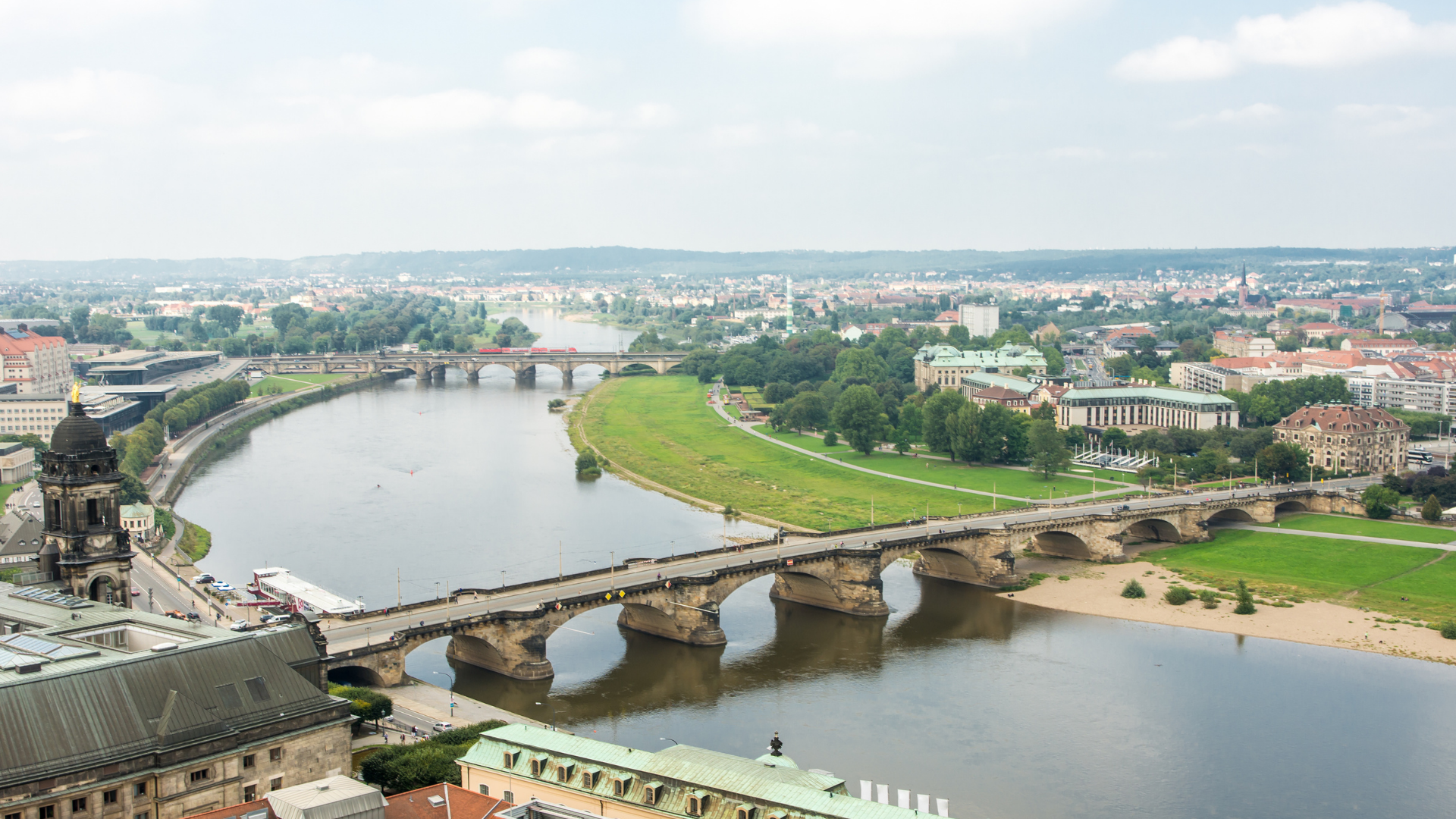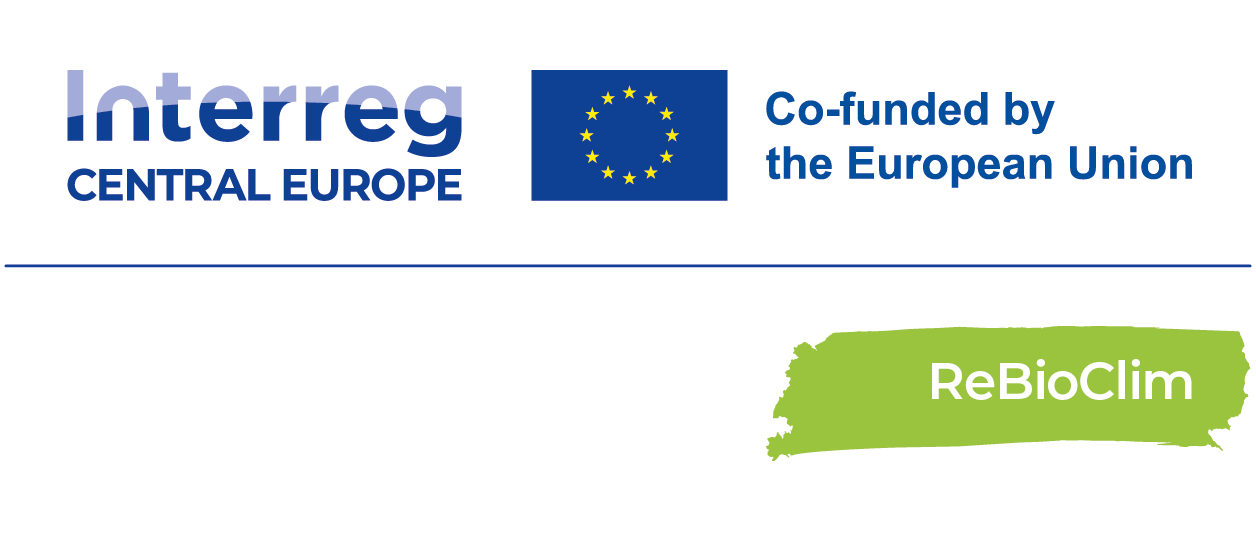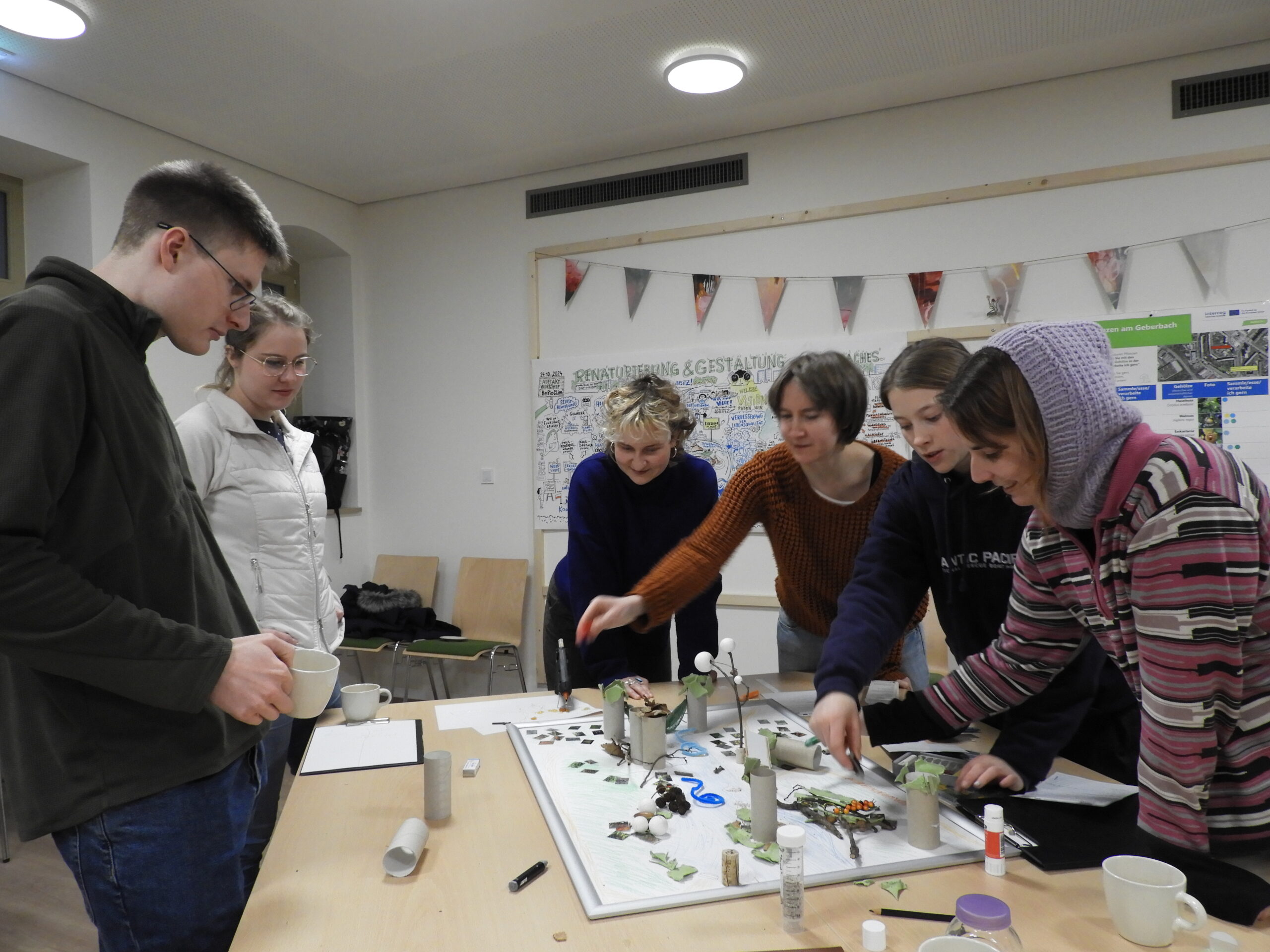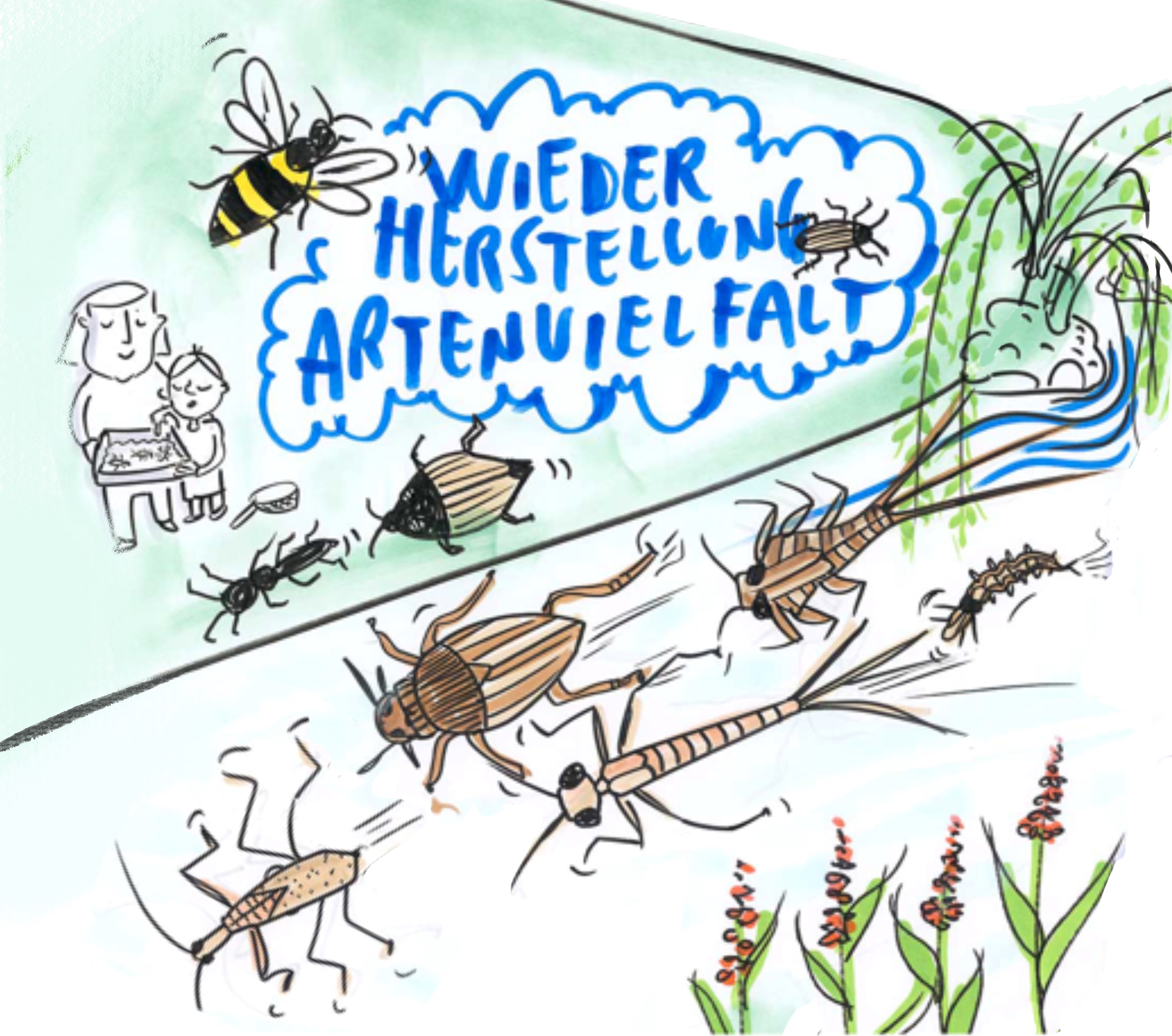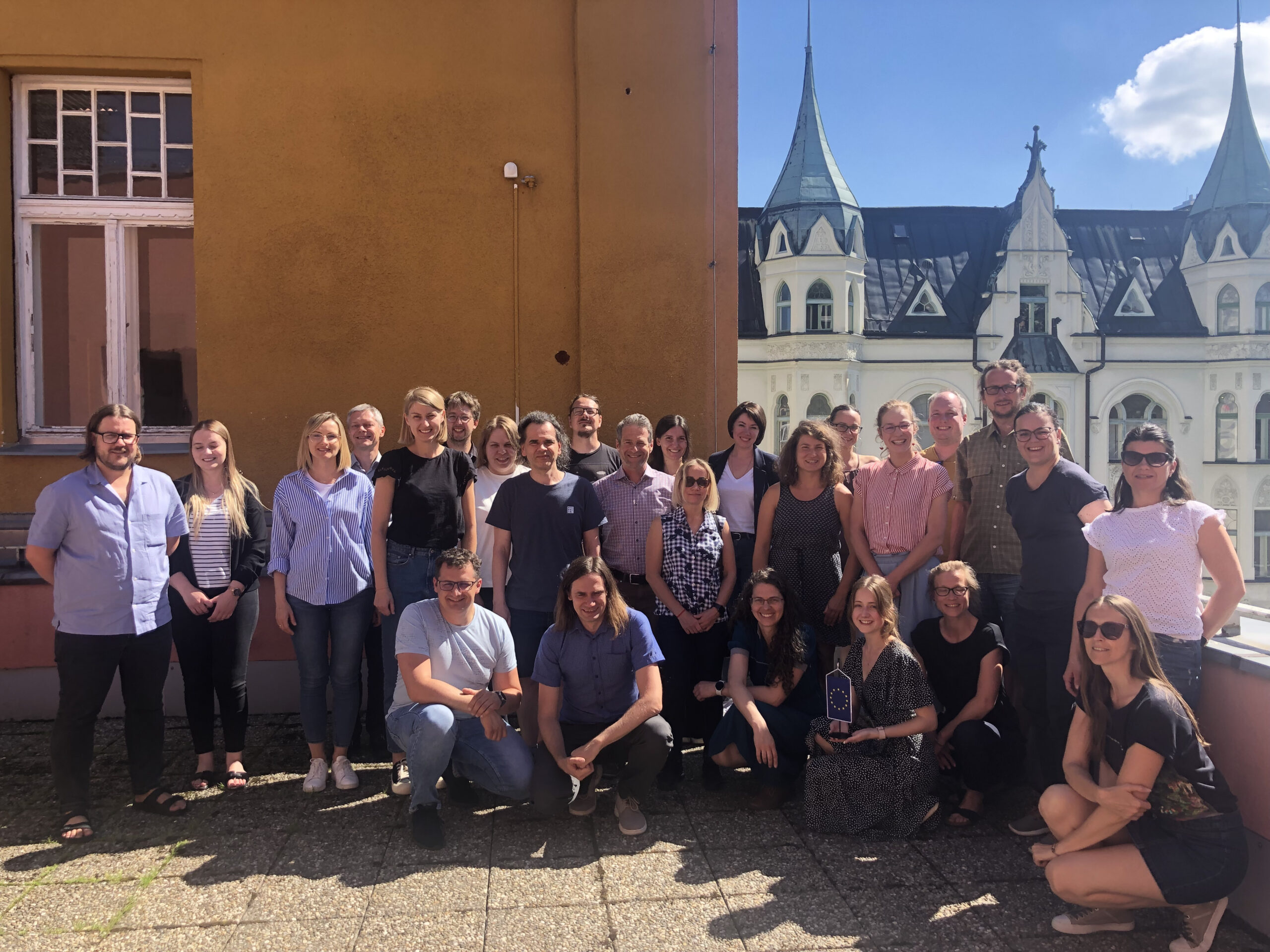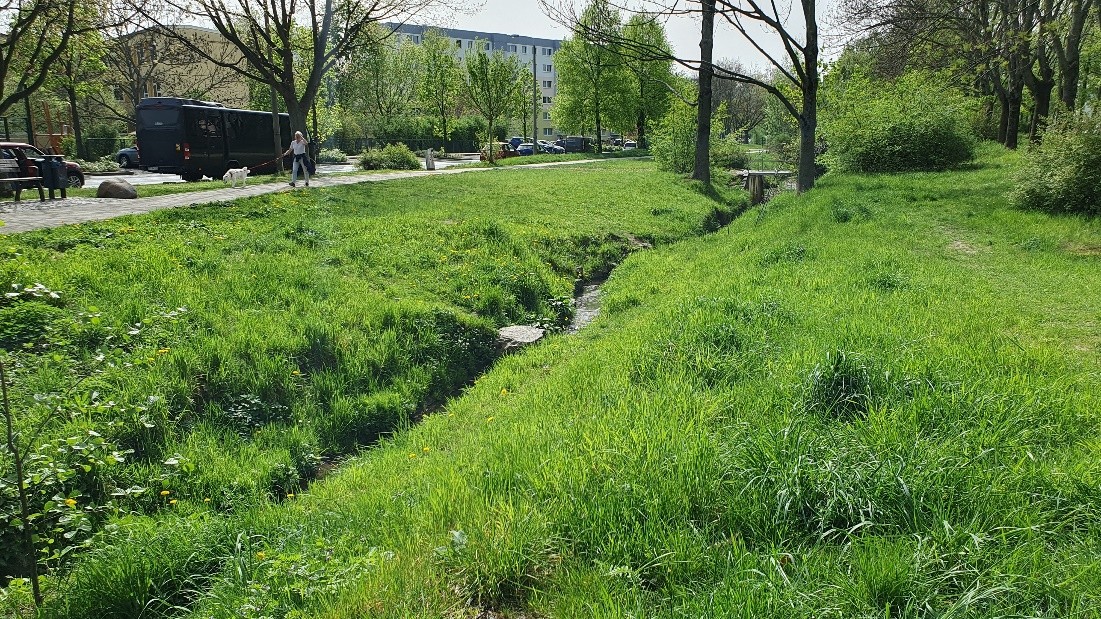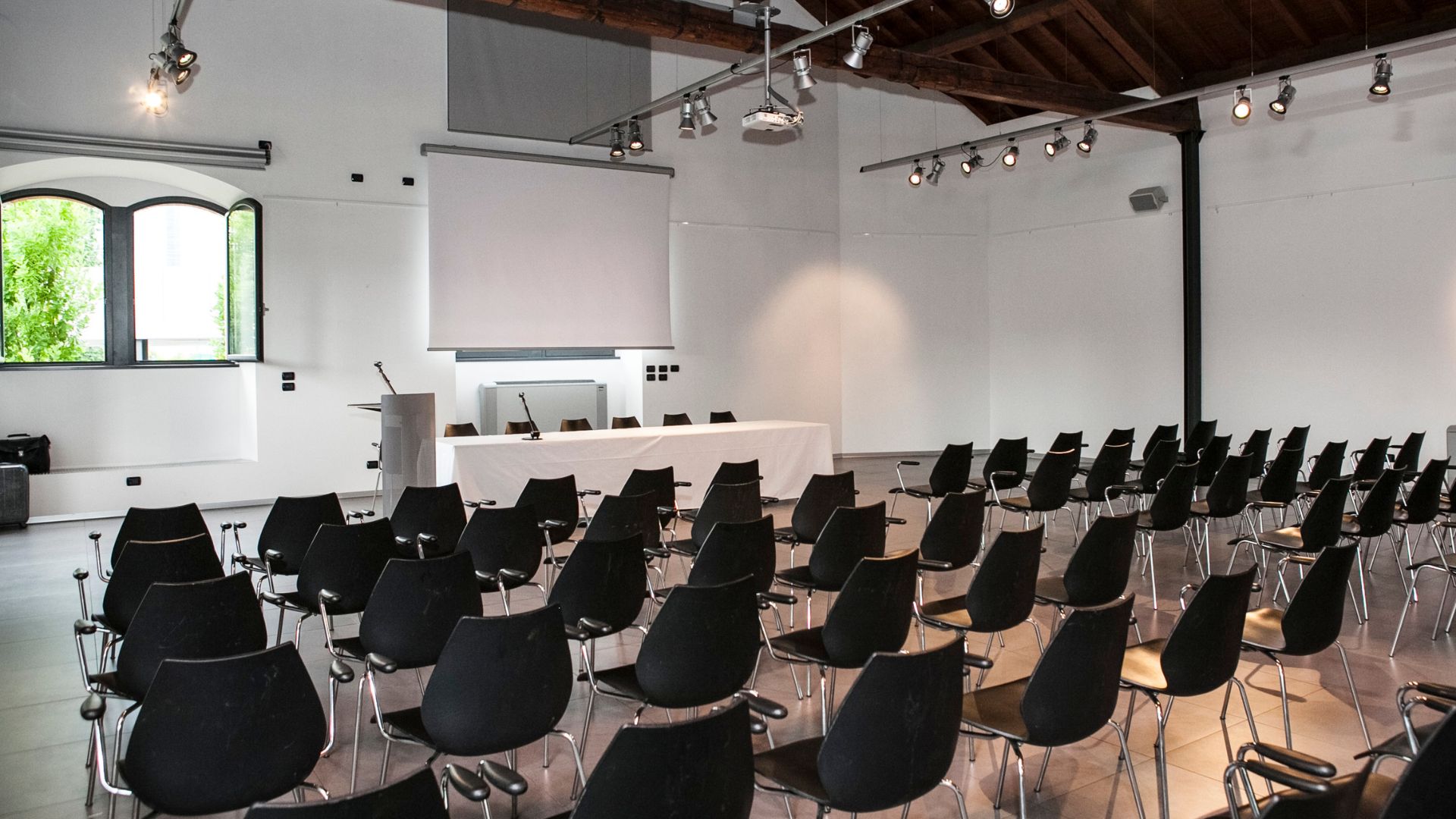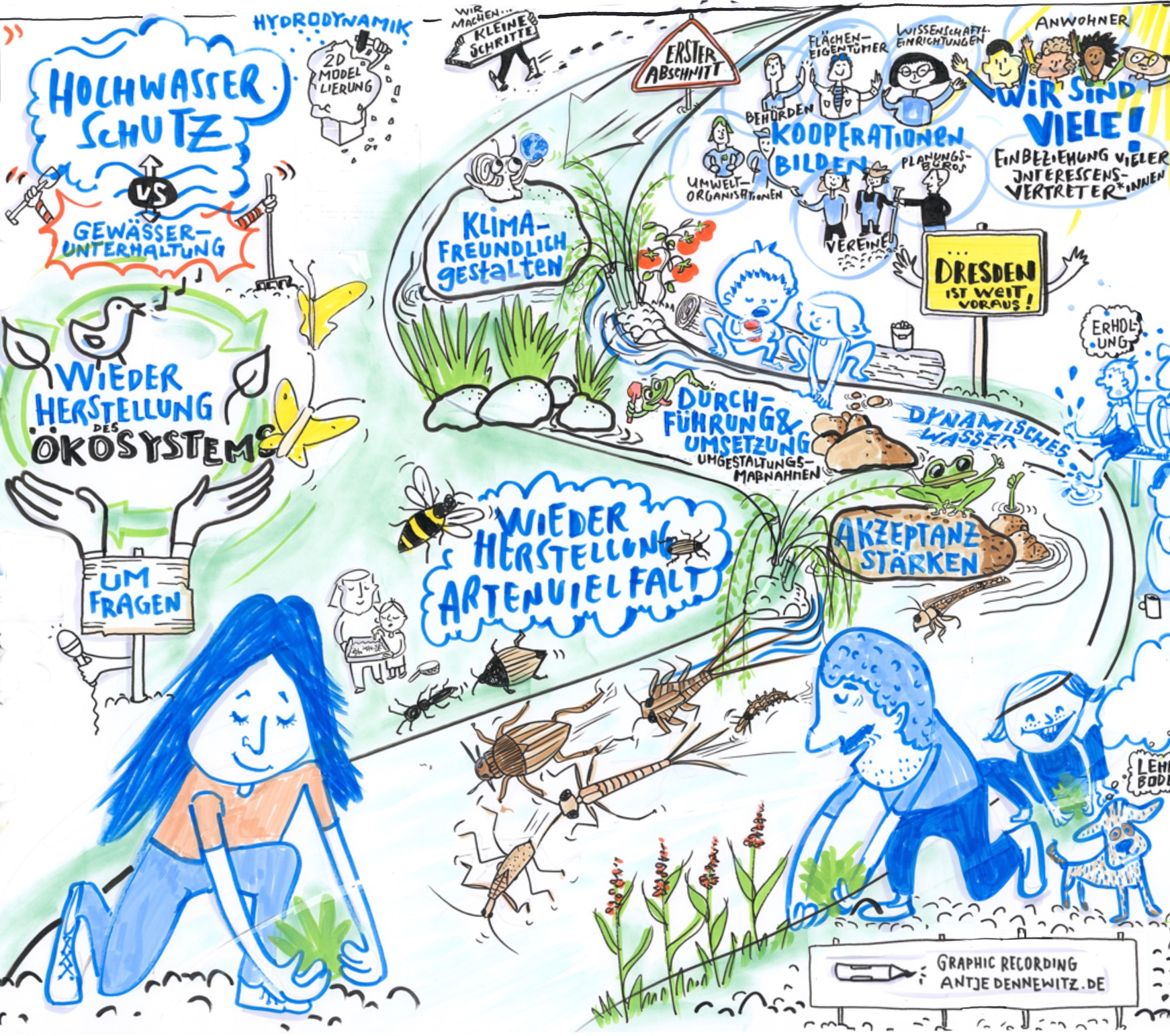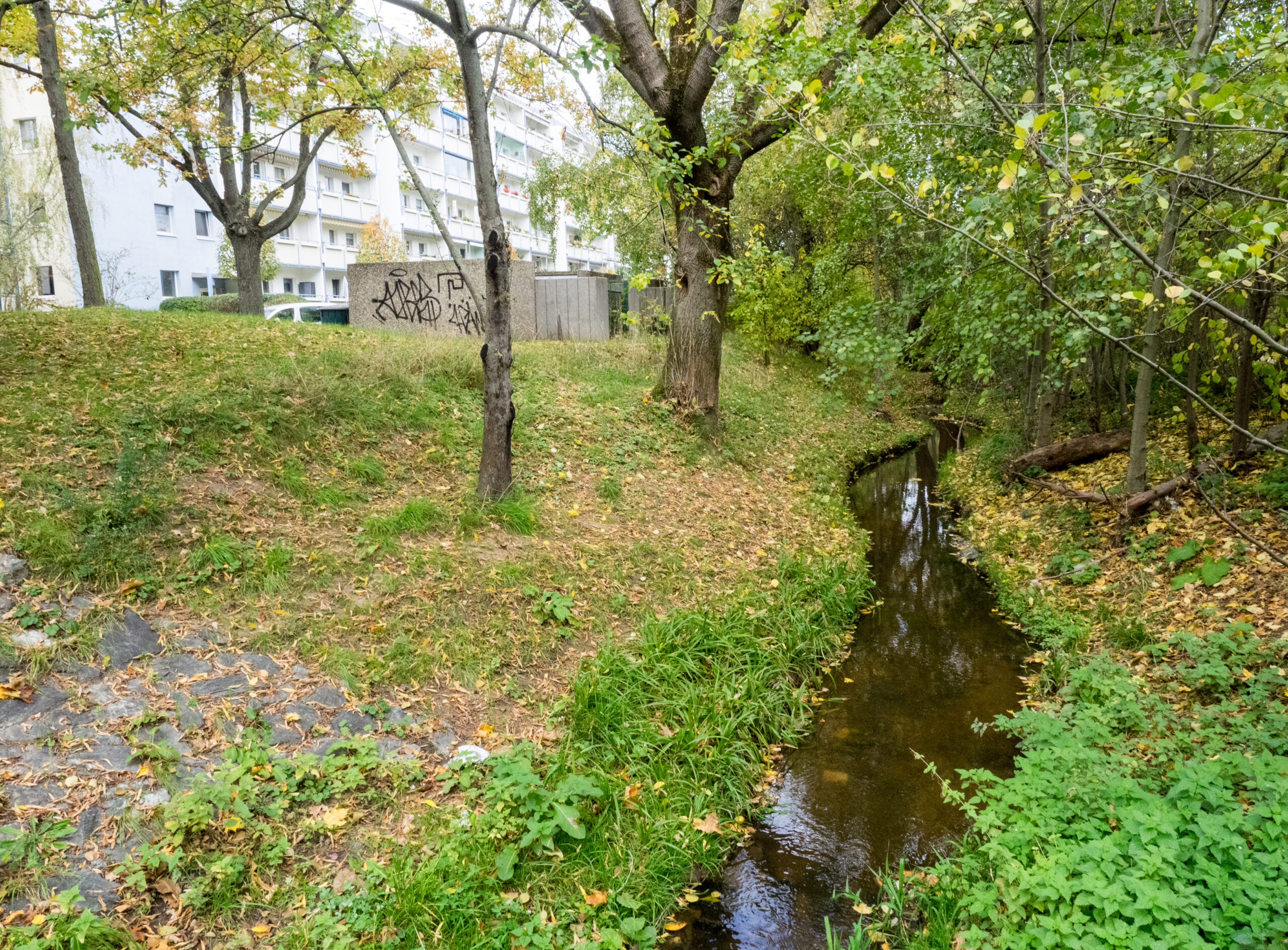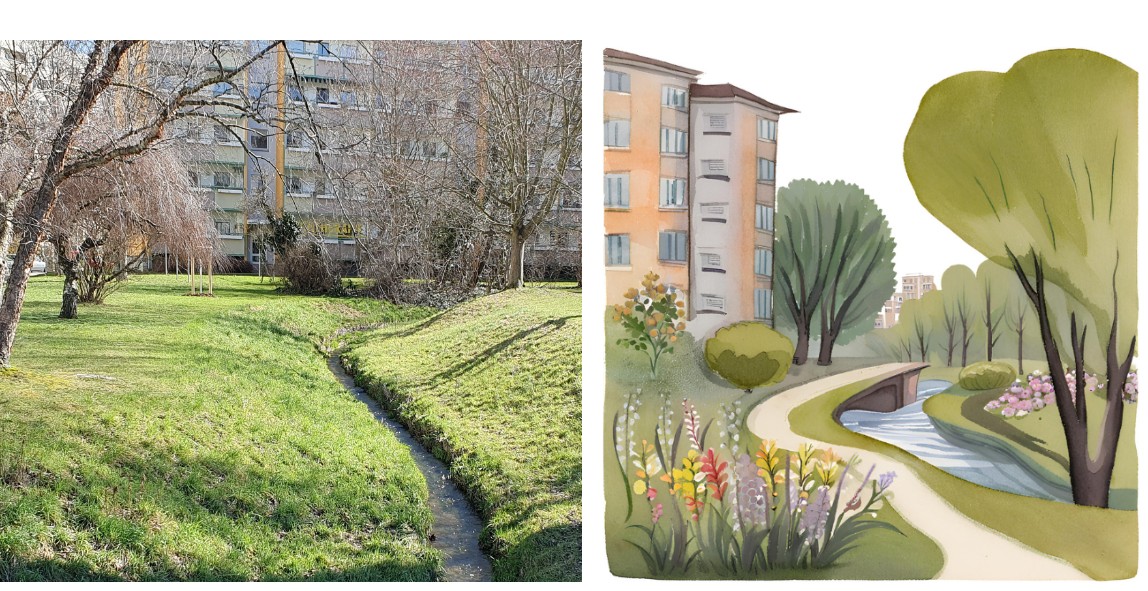Project overview
Restoring urban streams to promote Biodiversity, Climate adaptation and to improve quality of life in cities
Ecological restoration could help overheated cities with improving micro-climatic conditions and halting the decline of biodiversity. However, restoring green and blue nature corridors still lacks widespread acceptance among urban planners. The ReBioClim project addresses the many barriers and challenges for their nature-based solutions and strengthen the provision of sustainable biodiversity and ecosystem services. The partners focus on the re-establishment of urban streams. They analyse concrete challenges in four central European pilot areas, create and implement restoration plans, and produce a good-practice guide.
-
2,51m €
-
Project Budget
-
80%
-
of the Budget is funded by ERDF
-
5
-
Countries
-
7
-
Regions
-
12
-
Partners
-
2
-
Pilots
Duration
Start date
End date
Project progress
About the project
Project partnership
Project partners

Lead partner
Technische Universität Dresden
Department of hydro sciences / Institute of hydrobiology (IHB)
Project partner
Research Area Landscape, Ecosystems and Biodiversity
Department of Environment and Municipal Utilities
Institute for Economic and Environmental Policy
Department of Land and Water Resources Management / Faculty of Civil Engineering
Department Envionment and Greenery
Faculty of Environmental Engineering and Mechanical Engineering/Department of Land Improvement, Environmental Development and Spatial Management
Department of Urbanism / Section of Urban Design
Climate and Environment Department
Stategy planning department
46601 Jablonec nad Nisou
Roadmap
Challenges
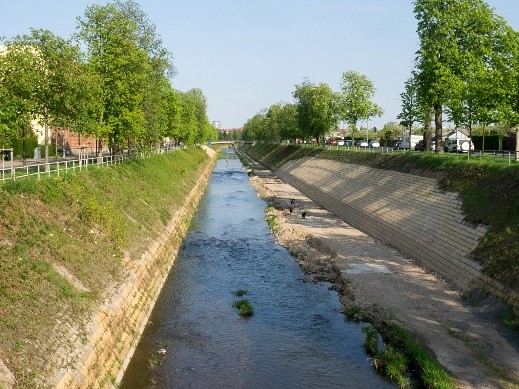
Urban streams have become increasingly invisible: overbuilt, channelized, or degraded. But in times of global warming, declining biodiversity, and continued pressures of urbanization, revitalized urban streams become highly valuable to form green and blue corridors contributing to climate adaptation in overheated cities or providing fresh air corridors. Restored streams can also be or connect floral and faunal habitats. Mainly, they are important recreational areas for human wellbeing. However, the restoration of streams in urban areas may face a lot of barriers and challenges: amongst others the lack of space, property rights of surrounding land, different stakeholder interests, few acceptances, and issues of flood protection.
Empowering cities for stream restoration
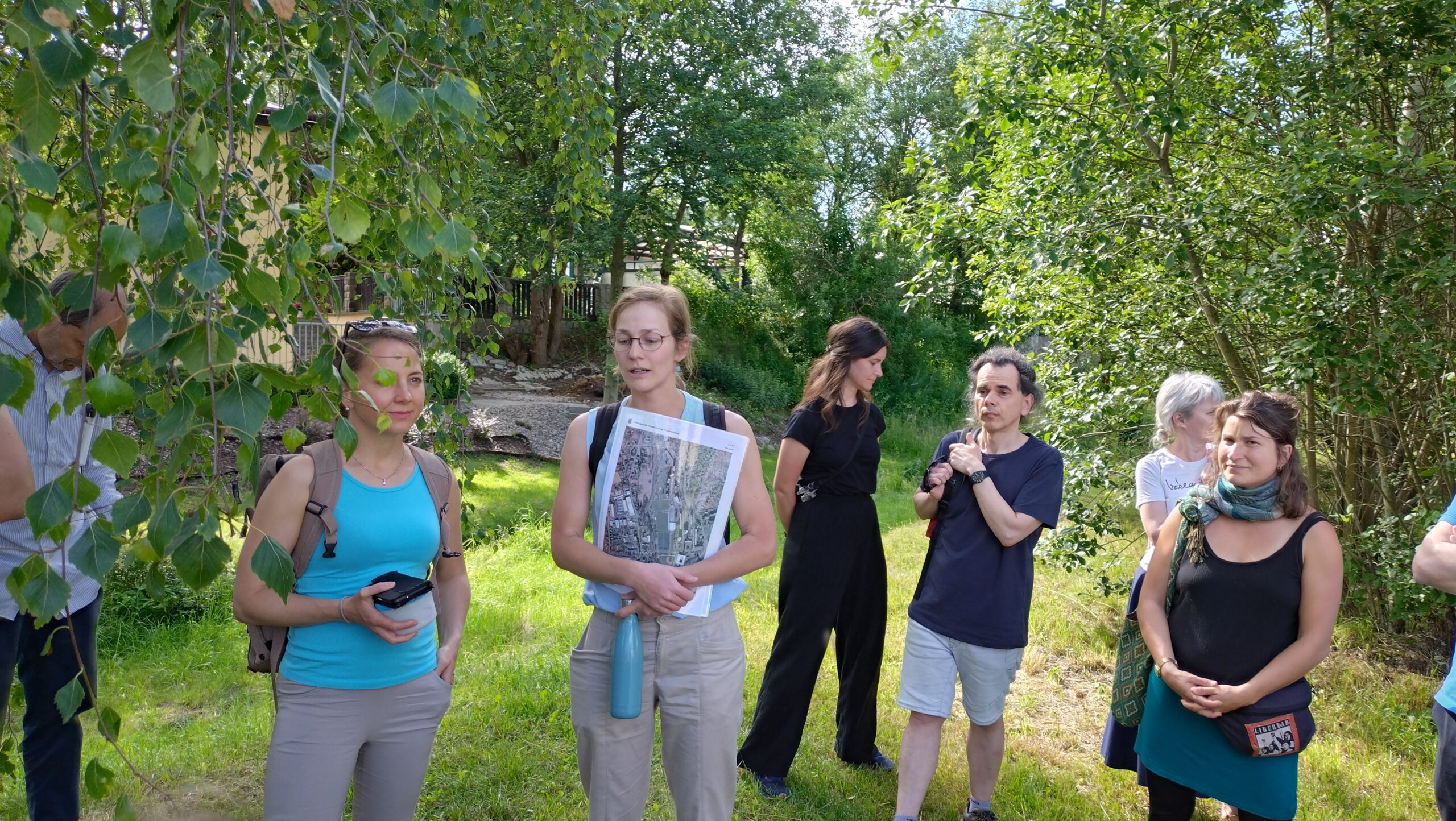
ReBioClim will perform an integrated analysis of the institutional, ecological, socio-economical, and spatial perspectives on urban stream restoration to face the challenges. For this purpose, the project team representing researchers, local public authorities, and practitioners will work together with many different stakeholders to identify the current opportunities. The focus in ReBioClim is on four project areas located in Dresden (DE), Jablonec nad Nisou (CZ), Poznan (PL), and Senica (SK). We address the following questions: How is the restoration of urban streams affected by institutional settings? Is it possible to alter the settings in order to enable the stream restoration in a more efficient and ecologically effective way? The project team is prepared to develop policy letters addressing policy makers and administrations with hints and guidelines for the selection of nature-based approaches in urban streams. Therefore, we arrange strategies and action plans for the stream study areas to foster successful implementation of the chosen approaches.
Identifying and implementing nature-based approaches
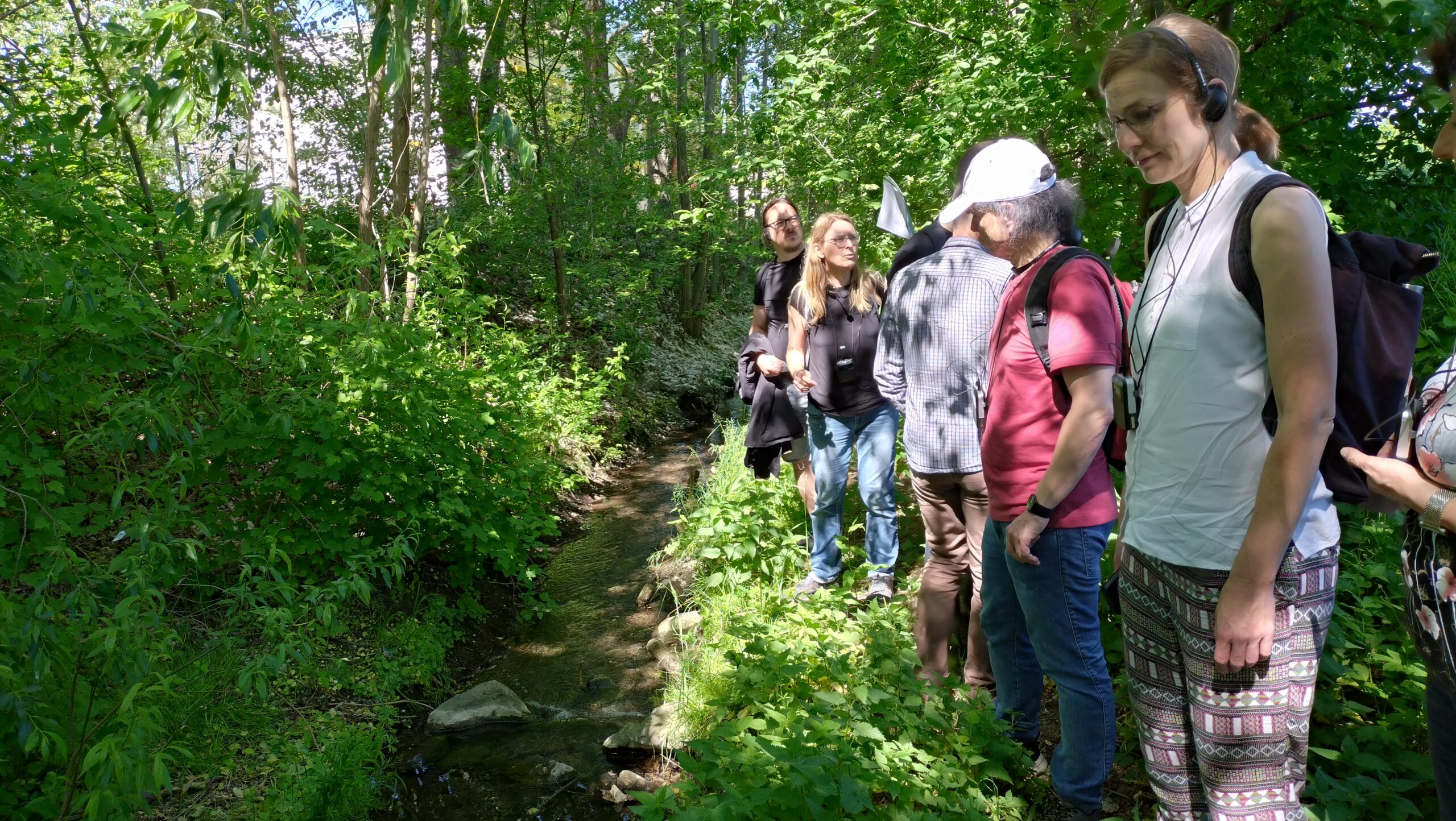
A catalog will compile possible nature-based approaches, their assessment and ranking regarding ecosystem services and biodiversity as well as their suitability for several urban contexts. Using the study areas as examples, we develop and demonstrate social-ecologically integrated solutions for urban stream restoration considering spatial conditions, stream morphology and the ecosystem services provided in response to the identified trade-offs. The decision and planning shall happen as co-creation of social-ecologically preferred measures with all relevant stakeholder groups. The project includes initial restoration activities as pilot actions at the core of our project in the case study areas Dresden and Senica and the monitoring of biodiversity effects and residents' appreciation.
Mainstreaming urban stream restoration in densely developed areas
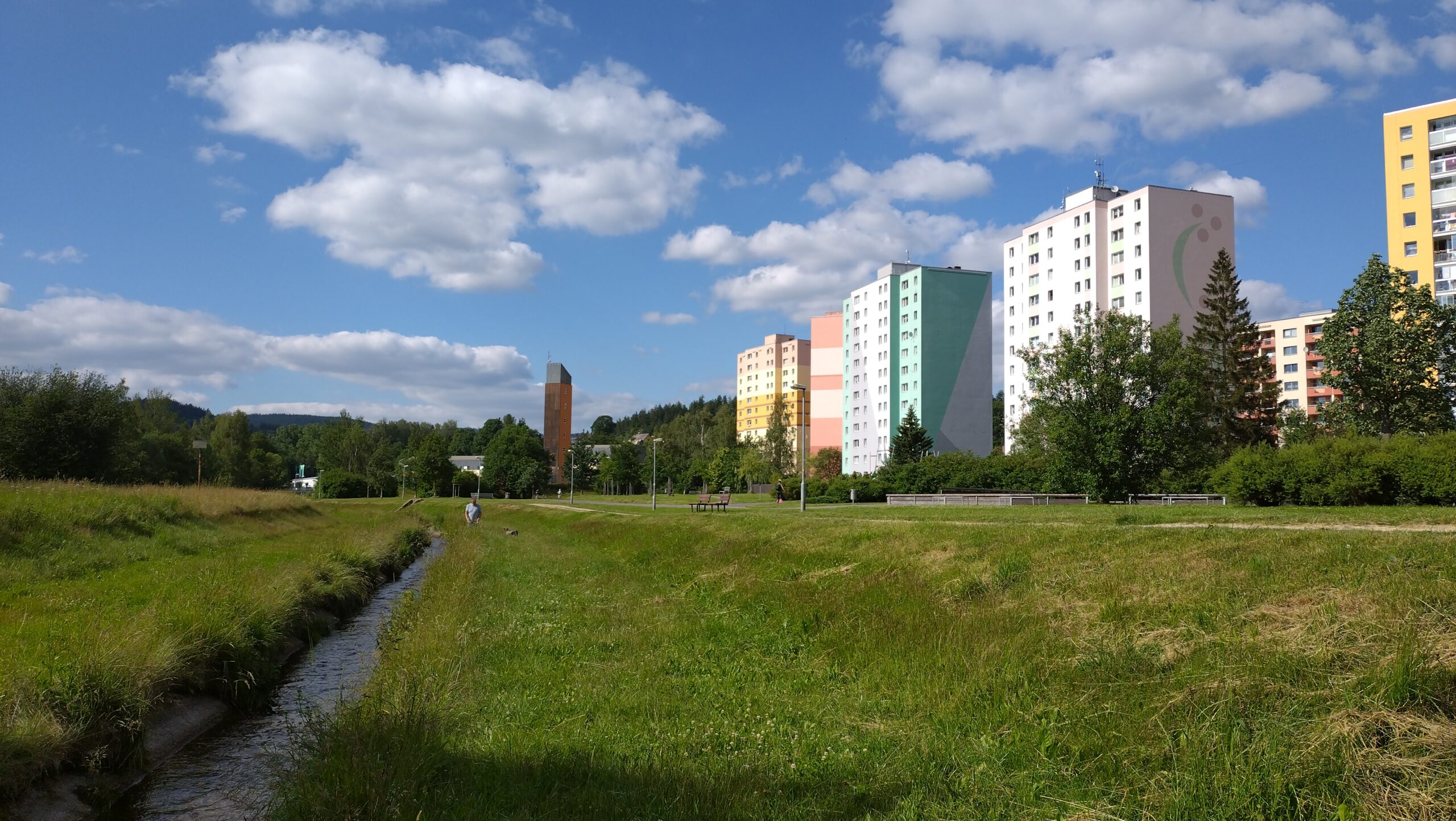
With a scalar framework, the project will enable the transfer of restoration measures to other locations or cities of comparable urban and climatic settings. ReBioClim will provide sound information needed and translate the science to public and policy. It will bring together different groups of stakeholders involved and affected by urban stream restoration to accompany the planning, co-designing the measures, attending the implementation process and experiencing the benefits. This should raise awareness for biodiversity and ecosystem services and increase the acceptance of nature-based approaches. A best-practice guidance should help for a widespread of applications in urban areas. It will contain a selection of possible measures, assessment criteria, and characteristics important for practitioners or public authorities in stream restoration or urban spatial planning. It will provide information on the ecological impact regarding biodiversity and the benefits for urban life as well as evidence-based knowledge for practical implementation and ecologically oriented political decisions The finally planned Handbook on urban stream restoration will provide practical guidance to apply a multiperspective, multidisciplinary and integrated approach to urban stream restoration.
News
Events
ReBioClim
The project lead partner is responsible for the content of this project website.
